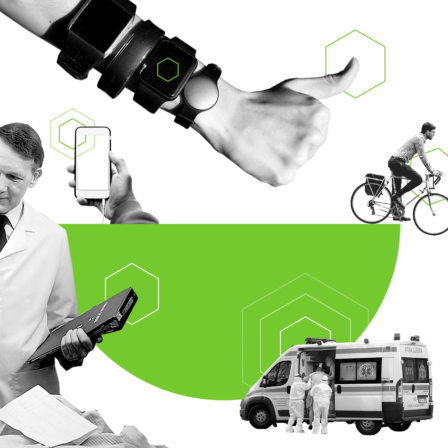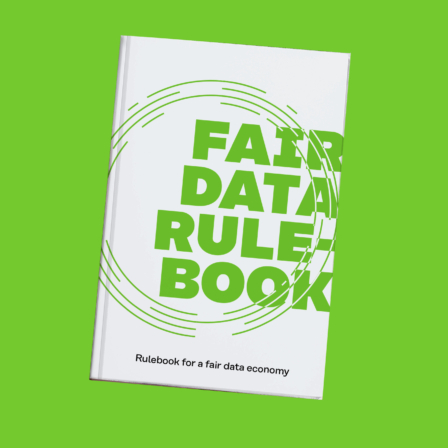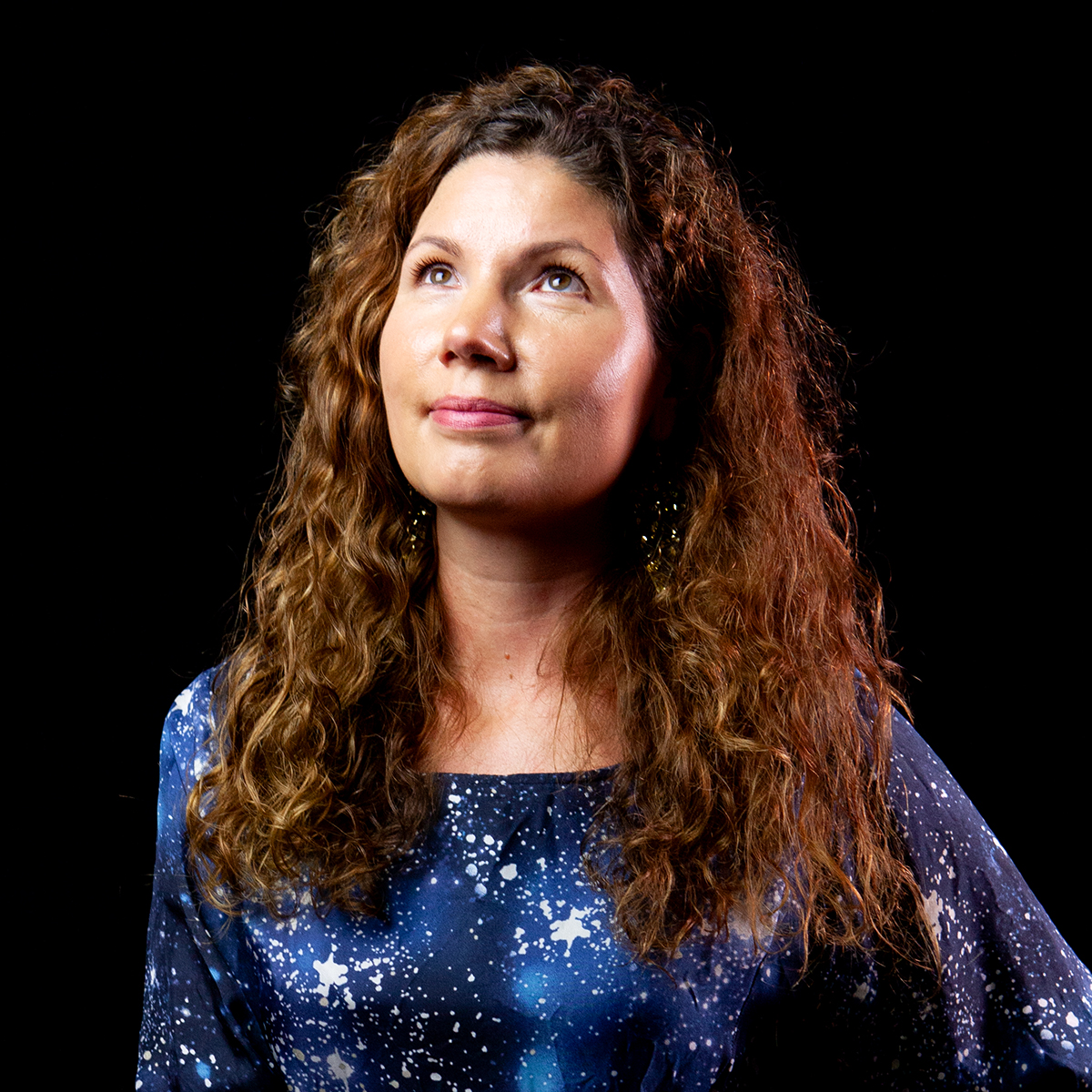Data economy tools in health sector ecosystems
Health sector ecosystems play a key role in boosting growth. The goal of Sitra’s projects was to gather experiences of the use of data in health sector ecosystems and strengthen the competitiveness of the health sector using fair data economy measures. The pilots were implemented in 2022–2023
What is it about?
Health sector ecosystems or co-operation networks have an important role and significance in society. They generate knowledge, skills and solutions that can be used to positively affect the health and well-being of the population. Improved health and well-being leads to better working capacity and functional capacity and has a positive impact on the economy.
Ecosystems play a key role in boosting the growth of the Finnish health sector. As data becomes a key success factor for ecosystem operations, the importance of sharing it also becomes more pronounced.
Following Sitra’s funding call, four health data ecosystems were selected to be developed under the guidance of experts from 1001 Lakes Ltd for six months.
The 1001 Lakes team strengthened each ecosystem’s understanding of common business requirements, partners and stakeholders, the design of the target network and, most importantly, the fair rules of the game for data collaboration that benefit all. The projects used Sitra’s Rulebook for a Fair Data Economy and 1001 Lakes tools to help ecosystems at different stages of development identify their needs and opportunities for managing and developing fair, profitable and sustainable data collaboration.
The aim was to increase data-sharing skills and strengthen the maturity and competitiveness of health ecosystems. The projects gathered experiences of the use of data in collaborative networks using fair data economy tools.
Results
Data ecosystem related to the home care of the elderly
Healthcare technology solutions are fragmented and siloed. Health and well-being data is limited in its accumulation, and neither the data collected about the patient or client nor the that collected by the patient or client is transferred with the care processes. In particular, patient data often remains in the provider’s own systems.
The development of services requires the use of data. The project concerned data created in the home care of older people. It modeled the movement of the data between different parties and a care-related data network in North Ostrobothnia in Finland. The project also aimed to remove barriers to the movement and use of data collected from multiple sources.
The project identified public and private organisations that could be connected to the data network. It also gathered practical insights through expert interviews on the fair data economy, opportunities and challenges of the data network. The interviews identified a number of issues related to skills and funding, legislation and its constraints, data and its reliability and quality, defining a business model that benefits all members of the data network, the roles of the different actors and the rules. The project showed that the technical implementation of the data network and data-sharing platform is feasible and that the main challenges are not technical.
The project used Sitra’s Rulebook for a Fair Data Economy where applicable and increased the knowledge about data use. The project also increased the understanding of the data ecosystem and provided a good basis for further development. The aim is to continue the work and build the data network for home care for older people in a phased approach.
Implementors and contact person:
BusinessOulu, Jenni Konttila, jenni.konttila (at) businessoulu.com
VTT Technical Research Centre of Finland
University of Oulu
Wointi Oy
Data collaboration between European children’s hospitals
The aim of the project was to strengthen cooperation between children’s hospitals across Europe by creating a common rulebook for data collaboration between children’s hospitals (ECHO – European Children’s Hospital Organization). Paediatric diseases tend to have small numbers of patients, making it particularly difficult to gather reliable research evidence and to develop and evaluate new treatments. Therefore, research and development in paediatric diseases also requires cross-border collaboration on data sharing and access.
The General Data Protection Regulation (GDPR) and privacy requirements have made sharing health data complex and time-consuming for hospitals, severely limiting access to health data. Six European children’s hospitals aimed to form a health data ecosystem to promote the use of data in developing child healthcare, research and knowledge asset management.
The project applied the Sitra rulebook and established a sustainable cooperation and governance model for the ECHO network according to the rules of the fair data economy. In addition to the rulebook, a constitutive agreement for the ECHO network of hospitals was prepared, which includes a description of the parties, roles, responsibilities and obligations, as well as general terms and conditions for data cooperation.
The project also carried out a clinical peer development pilot to compare the quality and performance of care between hospitals to gain insight into operational processes and how they can be improved. Although several European hospitals have different healthcare systems, participants faced similar challenges in terms of the secondary use of data.
Work on the data ecosystem will continue within the ECHO network and the Horizon Europe project.
Implementors and contact person:
Helsinki University Hospital (HUS), Pekka Kahri pekka.kahri (at) hus.fi
Sant Joan de Déu – Barcelona Children’s Hospital (SJD), Spain
GOSH – Great Ormond Street Hospital (NHS), United Kingdom
Erasmus Universitair Medisch Centrum Rotterdam, Netherlands
Meyer Azienda Ospedaliero Universitaria, Italy
Children’s Clinical University Hospital of Latvia (BKUS)
Data-based prevention of memory disorders
As the population ages, the burden of care for memory disorders is increasing. In addition to innovations in treatment, managing this burden requires the successful promotion of memory health to reduce the number of people affected by such disorders or to significantly delay their onset. To address this problem, a group of memory health stakeholders (the Memory Consortium) was established to develop a comprehensive and outcomes-based model for the prevention of memory disorders.
The project modelled the effectiveness and metrics of the model and showed that a memory health intervention significantly increases healthy life years at the population level and is at least cost neutral as part of a package of social services.
In addition, the Memory Consortium explored the feasibility of an outcomes-based model in practice through background studies and stakeholder interviews and laid the groundwork for a possible policy model. The project also outlined contractual details for the data network based on Sitra’s Rulebook for a Fair Data Economy.
Although the funded project has ended, the work continues. The Memory Consortium will pilot the performance-based approach developed in the project in the North Savo region of Finland. Further work will look at the preventive effects of lifestyle interventions in the most holistic way possible, with a particular focus on type 2 diabetes and cardiovascular disease, which share risk factors with memory disorders.
Implementors and contact person:
Kuopio Health, Kimmo Solehmainen, kimmo.solehmainen (at) kuopiohealth.fi
University of Eastern Finland
North Savo wellbeing services county
Gesund Partners
Wellpro Impact Solutions Oy
ESiOR Oy
Medication safety innovation ecosystem
The project involved the creation of an innovation ecosystem to produce solutions based on the use of health data to improve medication safety.
The project identified data repositories that can be combined and analysed to provide information on how to achieve medication safety. The study showed that there is a wealth of data available to improve medication safety but that it is not necessarily easy to use.
Medication safety risks were investigated in a specific use case pilot, which showed that data can be used to identify risks. The benefits of combining data sets should be explored more widely – new useful use cases can easily be identified. The project has gained experience of the skills required to deliver solutions and how to promote their uptake.
It can be concluded that national and global data repositories offer significant opportunities for better management and prevention of risks in drug treatment. The project also made the expertise of pharmaceutical safety experts available to different sectors and enabled collaboration with public authorities.
The collaboration between the project partners will continue as a practical project, including the development of an ecosystem approach.
Implementors and contact person:
Pharmaca Health Intelligence (Pharmaceutical Information Centre), Essi Kariaho essi.kariaho (at) laaketietokeskus.fi
VTT Technical Research Centre of Finland
Aalto University
Centre for Client and Patient Safety of the Ostrobothnian wellbeing services county



